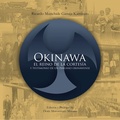Jamás, en toda mi vida de poeta, me había sentido en una situación tan ambivalente como cuando me pidieron recitar contra el presidente Alberto Fujimori. Era un acto de protesta ante su actitud de permanecer en el poder. Al llegar, me di cuenta que en la multitud yo era la única participante de origen asiático. Lo confieso: cuando me tocó el turno de subir al estrado, simplemente temblé y mis convicciones posmodernas occidentales empezaron a ceder ante siglos y siglos de tradición japonesa.
Una noche de verano
Finalizaba la década del 90 y Alberto Fujimori comenzaba a sufrir la debacle esperada de quien se aferra demasiado tiempo al poder. Dos veces se había reelegido presidente y la población peruana se encontraba hastiada de la corrupción imperante, de los medios de comunicación amordazados, del falso y truculento misterio de su oscuro lugarteniente: Vladimiro Montesinos. Todos los poderes: el legislativo, el judicial y el electoral, eran títeres del poder ejecutivo. El clan Fujimori comenzaba a vislumbrarse como un shogunato o, peor aún, como una familia imperial. Si bien durante diez años el gobierno, entre otras virtudes, había acallado el terrorismo y controlado la hiperinflación, la gente ya estaba harta y el régimen no daba para más. El slogan “honradez, tecnología y trabajo”, con el que había llegado al poder, había perdido toda credibilidad.
Una red de mujeres organizadas pensó que la mejor manera de celebrar el Día Internacional de la Mujer era protestando contra la llamada dictadura fujimorista. Poetas y cantantes fuimos convocadas para compartir nuestro arte. Para ello, levantaron un gran estrado en la misma Plaza Mayor, frente al mismísimo Palacio de Gobierno, donde se suponía que pernoctaba el presidente. Yo acepté de muy buena manera, pero ignoraba que esta celebración feminista respondía a un acto antigubernamental. “Bueno –pensé-, ya estoy aquí y no puedo dar marcha atrás, todo sea por mis convicciones democráticas”. Una a una, cantantes y poetas, fueron llamadas para subir al estrado y dirigirse a un público muy numeroso. Los altoparlantes colmaban la plaza con las voces de las mujeres, vivando a la democracia y pidiendo la caída del dictador. Hasta que me llamaron a mí, y realmente me sentí muy mal. Mal por estar ahí, mal por no poder compartir plenamente con las protestas de las mujeres, mal por tener que enfrentarme a otro nikkei, mal por la celada étnica en la que me auto-envolví.
Nikkei vs. nikkei
Subí estoicamente las escaleras, digna y grave como quien se dirige al cadalso a enfrentarse a la muerte. Agradecí con una venia a la presentadora, tomé entre mis manos el micrófono y observé el Palacio de Gobierno ubicado frente a mí. El viento era fresco y la noche amable, pero yo estaba petrificada por la tensión, por la expectativa del público que esperaba mis maldiciones al presidente. Siempre he sido sincera con mis sentimientos, y lo único que sentí en ese instante fue una gran sensación de traición y deslealtad para con mi raza y mis orígenes, como si cometiera una inconcebible falta de respeto a mi oniichan o hermano mayor. No podía insultar al nikkei Alberto Fujimori, al menos no en público. Y no lo hice. Recordé la novela de William Golding, El señor de las moscas , y la escena donde el adolescente británico, harapiento y perdido en una isla, no se atreve a arrojar la piedra contra su adversario porque siglos y siglos de discursos sobre la buena conducta pesaban más que sus necesidades personales.
Se supone que debía leer algún texto mío, y ni siquiera hice eso. Era como si no quisiera comprometerme ni ser parte de ese carga montón. En su lugar leí el largísimo poema del uruguayo Mario Benedetti, Padre nuestro latinoamericano , que habla de la injusticia social, de la absurda realidad latinoamericana, de las desilusiones de la vida. Eso fue lo que hice y todo eso fue lo que sentí. Ni hoy ni nunca me arrepentiré de confesar la misteriosa complicidad que sentí con un nikkei que no conocía, que criticaba e incluso cuestionaba. ¿Por qué sentí que compartíamos un mismo destino común, que nuestras vidas estaban enlazadas, que él también podía ser víctima del racismo y la exclusión que yo viví?, ¿por qué no lancé la piedra si estaba convencida de que la renovación era una imperante necesidad para el país?, ¿por qué vivía ese ambivalente episodio de amor y odio?
Como al personaje de Golding, los siglos y siglos de formación japonesa pesaron más que todas mis convicciones y discursos posmodernos sobre la democracia. Al terminar la lectura, bajé las escalinatas en silencio y me retiré inmediatamente de esa plaza que me asfixiaba. Durante años guardé en secreto ese suceso y no lo compartí con ninguna de mis amistades, pues a la caída de Fujimori mi comportamiento sería visto, ante los ojos de la oposición, como políticamente incorrecto. Solo mi amiga Francesca Denegri, crítica e investigadora literaria, comprendió perfectamente mi ambivalencia. Su inteligencia y humanismo le permitían la capacidad de entender más ampliamente la solidaridad; y quizás porque ella misma vivía constantemente experiencias migratorias por todo el mundo.
Racismo en la selva peruana
De alguna manera, Fujimori y yo vivimos las mismas experiencias racistas. Con su postulación a la presidencia del Perú en 1990, todas las personas descendientes de inmigrantes japoneses nuevamente fueron objeto de maltratos. Él sufrió las manifestaciones racistas a punto de alcanzar la cima, y yo las viví en carne propia como cualquier nikkei peruana. Por ejemplo, cuando por cuestiones laborales viajé a Iquitos, la ciudad más importante de la selva peruana, coincidentemente Fujimori también se encontraba allí en su cierre de campaña electoral.
Montado en un simbólico tractor, saludaba a diestra y siniestra, sonriente, sin aires de grandeza, como un ciudadano más que se paseaba por las calles. La comitiva pasó a mi lado y la emoción me embargó hasta las lágrimas. La verdad es que sentía muchísima emoción al ver a un paisano mío gozar de tanta simpatía y popularidad, incluso me dije en silencio: “¡caramba!, qué lástima que mi padre y mi madre no vivan para atestiguar este momento tan memorable, ¡por fin, un nikkei presidente del Perú!“
Cuando la comitiva se alejaba, un hombre de condición muy humilde que iba siguiendo el cortejo me miró con profundo odio y me increpó: “¡japoneses de mierda!, ¿por qué no regresan a su tierra?”. Quedé perpleja, anonadada, ¿qué le había hecho yo para que ese hombre me hablara así? Mi emoción anterior fue dando paso a una honda tristeza. Otra vez la barrera de la identidad, otra vez la exclusión nacional. Las familias japonesas ya llevábamos cerca de cien años en el Perú, pero una vez más se nos recalcaba una condición foránea.
De desconocimiento étnico no sufría el mencionado sujeto, pues cabe resaltar que innumerables inmigrantes chinos se asentaron en la selva peruana. Se guardan frondosos registros de exitosos comerciantes chinos que fueron dueños de grandes almacenes comerciales. Esta presencia asiática ha sido benévola y definitivamente goza de gran simpatía entre los habitantes amazónicos. Incluso, la mayoría formó hogares mixtos con mujeres del lugar.
A pesar del tiempo transcurrido, aún hoy sigo preguntándome ¿por qué me afectó tanto la grosería de un solo hombre?, ¿acaso bastaba una sola persona para hacerme cuestionar mi pertenencia al Perú? De hecho, resulta más interesante responder a estas preguntas que analizar la conducta de un sujeto que perseguía comitivas insultando a las personas a su paso.
Racismo en la costa
La segunda experiencia de racismo, en aquella época, la viví cuando Alberto Fujimori estaba a punto de vencer a Mario Vargas Llosa en las elecciones presidenciales. Me encontraba conduciendo el auto cerca de mi casa, en el Malecón de Chorrillos, cuando noté que un vehículo quería adelantarme por los bocinazos que lanzaba. Me apeé a la vereda para que pasara, cuando sorpresivamente el auto se colocó a mi lado y de su interior una mujer me miró con profunda rabia, mientras me gritaba: “¡japonesa tenías que ser!” y partió a toda carrera, imagino que feliz de haberme lanzado ese supuesto ¿insulto?
Ni siquiera me quedó aliento para reaccionar. Simplemente no podía creer lo que me había sucedido. Durante todos mis años de conductora me habían lanzado toda clase de groserías, pero esta era inconcebible por su sorprendente novedad. Hasta esa fecha, apelar a la característica japonesa no era ningún motivo de insulto, como sí lo era el ser negra, india, chola y hasta china, pero la palabra “japonesa”, jamás.
¿Qué pasó con la imagen de los y las descendientes de japoneses en el Perú, después de la experiencia Fujimori?, ¿decayó, mejoró, se mantiene igual que antes de su asunción? Ese es un tema que debe ser analizado en los próximos años.
En lo que a mí respecta, sigo muy atenta todos los juicios que se siguen al ex presidente nikkei, con el amor y el odio de una hermana de sangre, pero mi solidaridad se ve aislada y es fría y plana como la pantalla de televisión a través de la cual miro su rostro cansado y desencajado. De lo que aun sigo convencida es de que el racismo es la causa que lo tiene en el banquillo de los acusados y no lejos del país, gozando de la beneficiosa impunidad que tuvieron muchos presidentes peruanos hartamente peores y más crueles que él.
© 2008 Doris Moromisato






